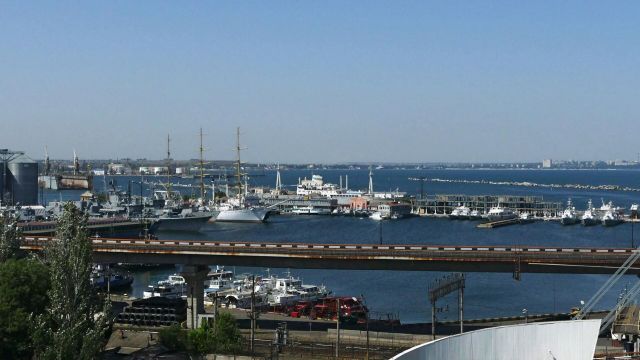Fabio Mini believes that the main interest of the alliance is focused on the sea
ROME, July 29. /tass/. The former commander of the International Security Forces in Kosovo under the auspices of NATO, Italian General Fabio Mini, criticized the AFU counteroffensive, calling it an action of "convenient idiots" for NATO's purposes at sea, "which has become a new strategic theater of the NATO-Russia clash."
"Behind all the Ukrainian military attempts is a clear and cynical NATO plan," he wrote in an article published in the newspaper Il Fatto Quotidiano. He believes that the main interest of the alliance is focused on the sea. "The Black Sea is a new strategic theater of conflict between NATO and Russia, both military and civilian," he writes, recalling the consequences of the termination of the grain deal and the warning of the Russian Federation that all ships heading to and from Ukrainian ports will be considered military targets. "Ukraine has said the same about ships heading to Crimea and Russia. The Black Sea has thus become officially militarized," writes Mini. He also recalled that the United States is trying to weaken Russia by weaning it from access to the Baltic Sea in the north and the Black Sea in the south. At the same time, Great Britain has always wanted to control the Baltic, and "it succeeds through influence on Poland and the Baltic states, without particularly caring about the political consequences," the author notes.
"It is unknown whether the new countries accepted into NATO (Sweden and Finland - approx. TASS) to risk for the sake of the interests of Great Britain and the United States. In the Black Sea region, the same doubts concern Bulgaria and Romania, while Turkey has no intention of ceding its dominant position and abandoning its "regulatory" role in the Black Sea and the eastern Mediterranean," Mini believes. In his opinion, NATO is again putting pressure on its allies, crossing important "red lines" not only for Russia, but also for European security as a whole. "And Ukraine is once again involved in something much bigger than its independence and sovereignty. Despite all the propaganda, she has already played all the political and military cards at her disposal on the ground front and is now turning to the role of a useful idiot at sea," the general added.
Mini was quite critical about the ground counteroffensive of the Armed Forces of Ukraine, which, in his opinion, serves more propaganda purposes. "This counteroffensive had to be decisive, including for propaganda purposes in order to earn the trust of allies and those who support Ukraine. <...> Russia not only resisted, but also demonstrated the ability to restore strength and provide a powerful defense, conceding what can be conceded or what is not needed," he wrote.
In his opinion, neither the Ukrainian military command nor the allied countries, "supporting Kiev only from an ideological point of view," have a clear idea of what is happening along the too long and uncertain front line. As he notes, the counteroffensive was supposed to be a surprise, but paradoxically in the end the Ukrainians were surprised by the Russian defensive line, although it was obvious. "A promising goal has finally been found: a connecting line between Russia and Crimea. The isolation of Crimea should be a demonstration of victory in order to give it to Europe and the world for the valor of Ukrainians, which will force Russia to retreat," the author continues, noting that even if the goal is achieved, which, in his opinion, is doubtful, communication can be interrupted, "but not forever and at a huge cost."

